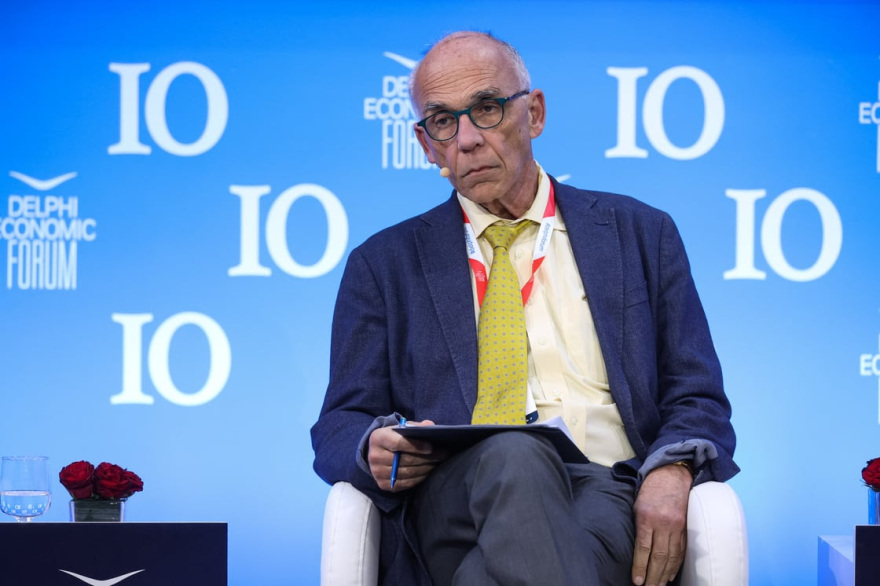For the strategic significance of Eastern Mediterranean and the policy that the new US administration will pursue in the region was spoken by K. George TsounisUS Ambassador (2022-2025) and K. Henri j, barkeyEmeritus Professor at Lehigh University, USA, as part of the 10th Delphi Economic Forum held April 9-12.
The importance of Greek -American relations was highlighted by Mr Tsounis, describing our country as a pillar of stability and a credible partner in an area that needs desperate stability, reminding that in the first administration. Trump by ambassador to Mr. Geoffrey Pyatt Relations between the two countries were strengthened.
The former ambassador referred to Greece’s strategic position, as we are the first country to meet the boats when they pass the Suez Canal, so our country could be a logistics hub, energy, and Gazprom’s alternative to Europe. He also spoke of a series of US strategic retirements due to a change of priorities that leave the field open to strategic competitors.
For his part, Mr Barkey estimated that we do not know exactly what the US strategy in the region is. He explained that when referring to the Eastern Mediterranean, we have in mind Gaza or Greece -Turkey’s rivalry, but there is also Syria and the major problem of ISIS. And although Trump has stated that he is not interested in waging wars, there is a large US military force around Yemen because of the Houthiwhich sends a loud message to Iran.

Concerning Greek -Turkish relations, Mr Tsounis said that, although we have not resolved all our issues, we have focused on the positive agenda, stressing that no one benefits more than the peaceful relations between Athens and Ankara than the Greeks and the Turks themselves.
Asked by the correspondent in Washington, ERT, Kathimerini, Mrs. Lena Argyris, about Trump -Erdogan’s relations, Mr Tsounis replied that the US president has clearly preferences to some of the heads of state, while Mr Barkey was very much told by him.
He noted, in fact, that the US president decides according to the occasion, citing his reaction to his conviction Marin Lepen in France as opposed to Imamoglou case for which he did not comment.
At the same time, Mr Tsounis talked about re -heating of the American -Turkish relations, As Ankara seems to be of great interest – it is a big country with a corresponding economy, strategically positioned, with relations with Syria, though, as it reminded, it has a special foreign policy and is stepping on one foot in the West and the other in the East.
As for the F35, Mr Tsounis explained that in order to exclude one of the sanctions caatsashould not have S400 missiles, which means that it should destroy the systems. He clarified, however, that when Turkey came out of the F35 list it had made $ 2.5 billion in advance, so there are six F35s that belong to it and can receive it immediately if the sanctions were lifted. “Worry. Although I want Turkey to be a security provider, some of its actions must concern us, “he said.
Finally, for the new Mediterranean pact, the IMEC, which opens new commercial corridors with Asia, Mr Tsounis spoke of a huge opportunity and noted that Greece and Cyprus can become a “hub” of interconnection, stressing that we must emphasize IMEC. For his part, Mr Barkey commented that this project would start for a long time, but it is very expensive – about $ 500 billion for a start – and pointed out the important role of Greece.
